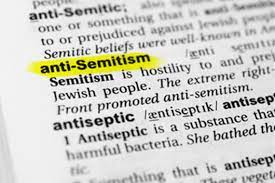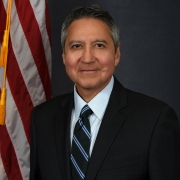Your Agency’s DEIA Strategy Should Address Workplace Antisemitism
By Dan Gephart, December 6, 2022
 Five years ago, it was young men carrying torches and shouting “Jews will not replace us” on the eve of the violent Unite the Right rally in Charlottesville. Four years ago, it was a 46-year-old man killing 11 and wounding six at the Tree of Life synagogue in Pittsburgh. More recently, celebrities, athletes, and news networks have thrust antisemitic tropes and conspiracy theories into the public consciousness.
Five years ago, it was young men carrying torches and shouting “Jews will not replace us” on the eve of the violent Unite the Right rally in Charlottesville. Four years ago, it was a 46-year-old man killing 11 and wounding six at the Tree of Life synagogue in Pittsburgh. More recently, celebrities, athletes, and news networks have thrust antisemitic tropes and conspiracy theories into the public consciousness.
Antisemitism has been increasing steadily since 2016. Last year, the Anti-Defamation League recorded the most antisemitic incidents since it started tracking the data 40 years ago. It’s widely expected that 2022 numbers will be much higher.
It should come as no surprise that these hateful stereotypes have found their way into the workplace. Yet, the results of a recent survey by the company Resume Builder were still outright shocking and should make the message clear to anyone involved in their agency’s DIEA efforts: You must address “antisemitism and cultural competency on Jews and Jewish issues” as part of your workplace DEIA strategy.
Last month, Resume Builder surveyed 1,131 hiring managers and recruiters in the U.S. The results were alarming, to say the least.
- 26 percent of hiring managers say they are less likely to move forward with Jewish applicants. The top reason is the belief that Jews have too much power and control.
- 26 percent make assumptions about whether a candidate is Jewish based on their appearance.
- 23 percent say they want fewer Jews in their industry.
- 17 percent say leadership has told them not to hire Jews.
- 33 percent say antisemitism is common in their workplace, and 29 percent say antisemitism is acceptable in their company.
- 9 percent say they have a less favorable view of Jews than they did five years ago.
Last year, the EEOC commissioners unanimously approved a resolution condemning violence, harassment, and acts of bias against Jewish individuals.
Earlier this year, EEOC Commissioners Keith Sonderling and Andrea Lucas spoke during a webinar addressing the rise of antisemitism in work and education settings.
“Too often, incidents of antisemitism in the workplace go ignored, but we cannot dismiss them,” Lucas said. “These insidious acts can contribute to a culture of hate that may give rise to physical violence later.”
The ADL’s Stand Up Against Antisemitism noted the many ways that bias and discrimination against Jews can manifest in the workplace:
- Microaggressions around Jewish culture or the way people look, such as one employee telling their Jewish coworker “Oh, you don’t look Jewish.”
- Tensions and hostility around geopolitical issues. For example, Jewish coworkers being held accountable, demonized, and harassed during conflagrations in the Middle East, or Jewish employees being seen as indistinguishable from Israel.
- Pervasive stereotypes about Jews that go unchecked, such as “Jews have too much power.”
- Denial of advancement opportunities
- Inequitable out-of-office policies and holiday observances
- Philosemitic remarks intended to be complimentary. For example, “give this task to David since Jews are good negotiators.”
Agency leaders need to set an example, unlike these leaders:
- The Philadelphia City Commerce Director who called the story of Schindler’s List mere moneymaking “propaganda.”
- The Salt Lake City CEO who sent an email to other Utah-based tech leaders claiming the COVID-19 vaccine is part of a plot by “the Jews” to exterminate people.
- The Google Global Diversity lead, who resigned after a blog post he wrote surfaced: “If I were a Jew I would be concerned about my insatiable appetite for war and killing in defense of myself.”
And then there was the supervisor in Lashawna C. v. Dep’t of Labor, EEOC Appeal No. 0720160020 (Feb. 10, 2017), who during an e-mail conversation about work hours and schedules, told a Jewish employee he (speaking about himself) had been working like “a Hebrew slave.” This supervisor’s actions proved costly to the agency, which was found liable for the harassment due to a lack of evidence that it exercised reasonable care to prevent and correct the harassment.
It’s not just leaders, though. All employees play a role in preventing and addressing these behaviors, Commissioner Sonderling said in the aforementioned webinar.
If you lead agency DEIA efforts take note: A workplace is not inclusive if any type of bias goes unchecked. As the ADL wrote: “This results in psychological harm, unhealthy interpersonal interactions, inequitable workplace policies and procedures, diminished employee productivity, and lack of accountability across the organization.” Gephart@FELTG.com
[Editor’s note: Keep up to date with DEIA articles and training opportunities via FELTG’s DEIA Guidance and Resources.]


